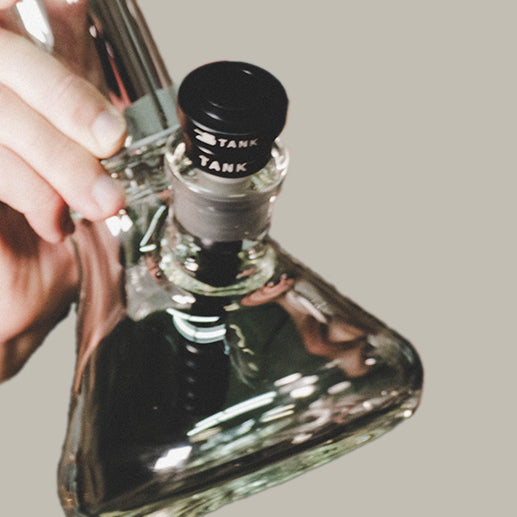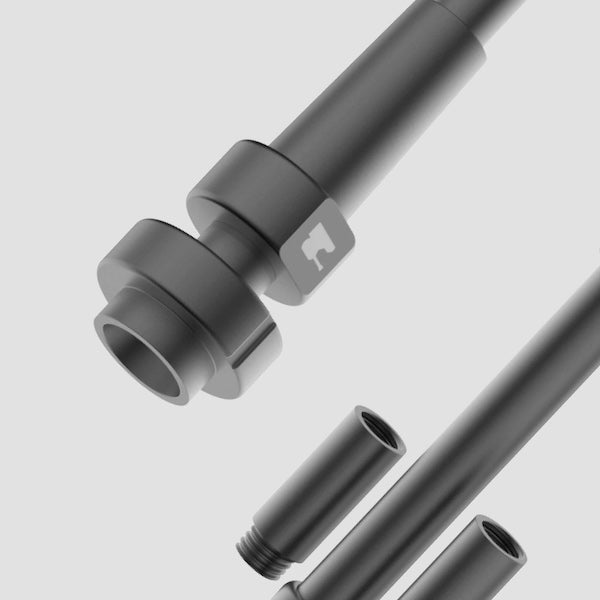While most of us are aware of the psychoactive effects of marijuana (the high that results), it’s time to ask the bigger question: “Is it safe to smoke marijuana on a daily basis?” and “What exactly is chronic cannabis use?” To find the answers to these questions, you have to compare your own experiences with the following information. We just have one simple suggestion – if you feel that you should cut down on your cannabis consumption or stop smoking altogether, then by all means, do it.
On the other hand, if you’re okay with your consumption levels but still want to know if you’re smoking too much, you have a lot of factors to consider. Trying to assess your own behavior is just about impossible. However, you can get close to the truth of the matter. Therefore, it’s worth trying to determine if your cannabis use can be categorized as abusive or dependent. Unfortunately, you’re going to have quite a challenge on your hands because trying to define cannabis abuse or dependency can be difficult.
The reason for these difficulties is that cannabis abuse and dependency don’t exhibit the symptoms or warning signs that chemical addictions do. However, there is a minute difference between abuse and dependency. Abuse relates to the way in which the drug is used and the effects that it has on you while dependency is how difficult it is to stop using cannabis. Interestingly enough, the two often go hand in hand.
The first if not the most obvious question is “Do you find that you smoke even when you don’t really feel like it?” Here are some additional questions to consider:
Asking these kinds of questions is an excellent start to understanding the relationship you have with cannabis. If you can control the quantity of cannabis that you smoke along with ensuring you don’t do it often, addiction will be at bay.
So, what causes cannabis dependency? Drug dependencies typically occur when the brain’s neurotransmitter receptors become desensitized. In many ways, it is like tolerance in that as tolerance increases, so too does dependency.
Additionally, there are potentially a number of long-term effects to be aware of such as changes in mood, heart and lung problems similar to regular tobacco smoking, little or no motivation, and weight gain. For more information contact Tank Glass today at (323)-364-7952 or e-mail us at support@tankglass.us.
On the other hand, if you’re okay with your consumption levels but still want to know if you’re smoking too much, you have a lot of factors to consider. Trying to assess your own behavior is just about impossible. However, you can get close to the truth of the matter. Therefore, it’s worth trying to determine if your cannabis use can be categorized as abusive or dependent. Unfortunately, you’re going to have quite a challenge on your hands because trying to define cannabis abuse or dependency can be difficult.
The reason for these difficulties is that cannabis abuse and dependency don’t exhibit the symptoms or warning signs that chemical addictions do. However, there is a minute difference between abuse and dependency. Abuse relates to the way in which the drug is used and the effects that it has on you while dependency is how difficult it is to stop using cannabis. Interestingly enough, the two often go hand in hand.
The first if not the most obvious question is “Do you find that you smoke even when you don’t really feel like it?” Here are some additional questions to consider:
- Are you spending money on marijuana when you know you can’t afford it?
- Do you wake up on your day off thinking that you won’t smoke that much only to be completely stoned by noon?
- Is your smoking interfering with your other interests?
Asking these kinds of questions is an excellent start to understanding the relationship you have with cannabis. If you can control the quantity of cannabis that you smoke along with ensuring you don’t do it often, addiction will be at bay.
So, what causes cannabis dependency? Drug dependencies typically occur when the brain’s neurotransmitter receptors become desensitized. In many ways, it is like tolerance in that as tolerance increases, so too does dependency.
Additionally, there are potentially a number of long-term effects to be aware of such as changes in mood, heart and lung problems similar to regular tobacco smoking, little or no motivation, and weight gain. For more information contact Tank Glass today at (323)-364-7952 or e-mail us at support@tankglass.us.




